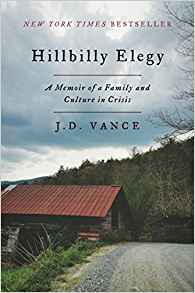
The Great Santini by Pat Conroy (Audible. 2009 ISBN 978-0553381559)
I was given a copy of Conroy’s last book, A Low Country Heart by a friend for Christmas. I wasn’t too kind to the old guy in my review (use the search function above to find what I had to say) but, having loved the movie version of Prince of Tides and having heard nothing but raves about The Great Santini and Conroy’s other, autobiographical novels, well, I had to try another book written by this Boy of the South. I chose Santini as my selection and listened to the Audible version of the novel on my rides to and from the courthouse. Here’s my take.
Conroy knew himself, his family dynamics, the fear and loathing, and yes, love, he felt for his father, a Marine Corps fighter pilot who served in three wars. It’s a difficult thing, I think, for sons to write about fathers. At least, I know that will be true for me when I finally sit down to put my life with my old man on the page. The warts. The celebrations. The wisdom. The anger. The tender moments. The praise. The chastisement. They all have to be there, whether you’re writing an autobiographical novel or a memoir. Here, at times, I think Conroy’s venting of his teenage-self’s hatred of The Great Santini, who, like the author’s own father, is a no-holds–barred disciplinarian and asshole, gets in the way of the protagonist’s story. And yet, in the end, Conroy is such a masterful storyteller, for 3/4 of the novel, he had me spellbound. It’s the other 1/4 of the book, where Bull Meecham is an unbearable brute, who, despite the ending (spoiler alert) eventually does get his comeuppance, and several extended narrative passages chronicling the details of the Meecham family’s domestic life, that leads me to give this less than a 5 star or even a 4 and 1/2 star review. Conroy knows how to write for the male half of American society. His depictions of boyhood bullying and sports and flirtations with girls becoming young women is all spot on. I enjoyed the story except for those rare passages that dragged or became so brutal and horrific (in terms of Bull’s behaviors) that I nearly wanted to scream at Ben, the son, the oldest child, and the Conroy stand-in, to find Bull’s .45, put a bullet in the old man’s noggin and end it all. But, after finishing this marathon of family dysfunction, I have to admit: Pat Conroy knew how to spin a yarn.
4 stars out of 5. I need to see how Duvall played Bull in the movie. On to NetFlix…

Hillbilly Elegy by J. D. Vance (Audible. Harper Audio. 2016. 978-0062300553)
Weird, huh? I follow up reading one Southern writer’s bestselling novel by diving into a memoir/social science dissertation concerning mountain folk, poverty, welfare, and yes, just like The Great Santini, family violence and dysfunction. J. D. Vance is a survivor. No doubt about that. When one reads (or in my case, listens to) his life story as depicted in this tale, it’s remarkable that the boy made it to becoming a man. That much is clear. Vance makes it readily apparent that he managed to become an Ivy League-educated lawyer and writer, not because of his immediate family (his parents) but because of extended family, friends, and teachers filling in the void, protecting him, nurturing him. The autobiographical portions of the book are outstanding. It’s when Vance switches from telling his life story and educating the reader/listener indirectly about the effects of poverty and familial discord upon children though his prose to lecturing us on social policy that the memoir loses steam.
It’s a worthy read, a read that fits in well with our current political impasse but Vance’s pronouncement that he remains a “Conservative Republican” begs the question: How can that be possible? I mean, is he not reading the newspapers, listening to the radio, watching the news (including Fox)? I’m not talking about the Orange Headed One and his accelerating disintegration. I’m talking about what the leaders of the Republican Party are proposing in terms of social engineering with the dismantling of the ACA, defunding birth control services provided by Planned Parenthood, tax breaks for the wealthiest segment of society, increased military spending at the expense of Medicaid, and the like. Take Vance’s experience as the grandson of Kentucky hillbillies as an example. He writes poignantly and lovingly, but with a distinct hint of irony and angst, about his mother, his sister and other young women becoming pregnant months after they have their first menses. Where does these young women turn for birth control if Planned Parenthood is defunded? Surely, a man as smart as Vance knows that simply because some old white dudes in Washington stop making birth control available for poor teenaged girls, they won’t stop having sex and making babies.
I enjoyed hearing Vance’s story. And he’s right: more folks, white, black, rich, poor all need to take responsibility for their own actions. But sometimes, despite all the rhetoric coming from The Right, folks do need a helping hand. Despite having been able to take advantage of Pell grants and scholarships and other programs directed at serving the author and others in his situation, Vance’s “pull yourselves up by your bootstraps” mantra, though eloquent and without the harshness of Rush or Hannity’s vitriol, rang a bit false to me. Still, overall, this memoir is a well-crafted, valuable read.
4 stars out of 5.
Peace.
Mark


